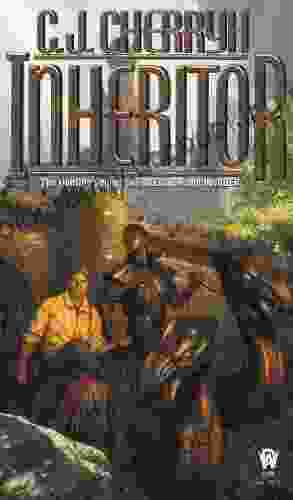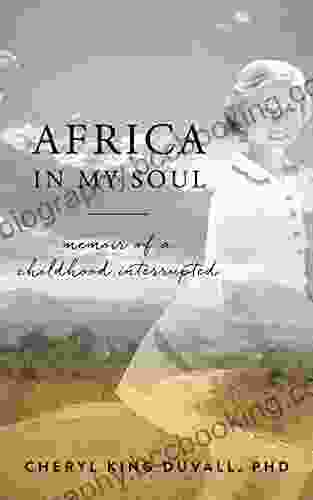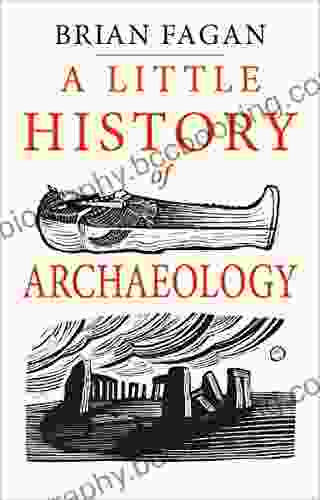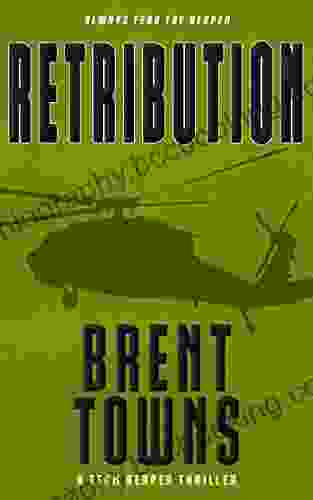Little History Of Archaeology Little Histories

Archaeology, the study of past human societies through their material remains, offers a captivating lens into the origins and evolution of humanity. From the earliest stone tools to sprawling ancient cities, archaeological discoveries have illuminated the rich tapestry of human existence, shaping our understanding of the past and inspiring countless generations.
4.6 out of 5
| Language | : | English |
| File size | : | 10070 KB |
| Text-to-Speech | : | Enabled |
| Screen Reader | : | Supported |
| Enhanced typesetting | : | Enabled |
| X-Ray | : | Enabled |
| Word Wise | : | Enabled |
| Print length | : | 296 pages |
In this comprehensive exploration, we embark on a journey through the annals of archaeology, uncovering the methods, theories, and groundbreaking discoveries that have transformed our knowledge of human history. Join renowned experts as they delve into the fascinating world of archaeology, revealing the techniques used to excavate and analyze archaeological sites, and sharing the thrilling tales behind some of the most iconic archaeological finds.
The Origins and Evolution of Archaeology
Archaeology, as a systematic discipline, has its roots in the 19th century, but its origins can be traced back to the earliest human attempts to understand their own past. From the ancient Greek historian Herodotus, who traveled extensively to document the ruins of ancient civilizations, to the Renaissance scholars who rediscovered classical texts and artifacts, the study of the past has long fascinated humankind.
In the 19th century, archaeology emerged as a scientific discipline, with the development of rigorous excavation methods and the establishment of archaeological institutions. Pioneers like Sir William Flinders Petrie in Egypt and Heinrich Schliemann at Troy revolutionized archaeological practices, setting the stage for the modern era of archaeological research.
Archaeological Methods and Techniques
Archaeologists employ a diverse range of methods to uncover and analyze the material remains of past societies. Excavation, the controlled removal of soil and artifacts from an archaeological site, remains a cornerstone of archaeological research. Remote sensing techniques, such as ground-penetrating radar and aerial photography, provide valuable insights into buried structures and landscapes.
Once excavated, artifacts and other materials are meticulously analyzed to extract information about past human behavior. Archaeologists study the form, function, and distribution of artifacts, as well as the environmental context in which they are found. This analysis helps reconstruct past lifeways, technological developments, and cultural practices.
Theories and Interpretations in Archaeology
Archaeology is not merely the collection and analysis of data; it also involves the interpretation of the material remains of the past. Archaeological theories provide frameworks for understanding the archaeological record, shaping how archaeologists interpret the data they uncover.
Functionalist theories focus on the practical aspects of artifacts and structures, while symbolic theories explore their cultural and ideological significance. Processual archaeology emphasizes the role of environmental and social factors in shaping human behavior, while post-processual archaeology challenges traditional notions of objectivity and encourages multiple perspectives.
Iconic Archaeological Discoveries
Archaeological discoveries have captivated the public imagination, revealing the splendor of ancient civilizations and shedding light on the human experience across millennia. Among the most iconic discoveries are the Rosetta Stone, which unlocked the secrets of ancient Egyptian hieroglyphs; the Terracotta Army, an awe-inspiring collection of life-size warrior statues guarding the tomb of China's first emperor; and the Dead Sea Scrolls, a treasure trove of ancient biblical texts.
These discoveries, and countless others, have transformed our understanding of human history, providing tangible evidence of the ingenuity, artistry, and cultural diversity of our ancestors.
The Importance of Archaeology
Archaeology plays a vital role in shaping our understanding of the human experience. By studying the material remains of the past, archaeologists provide insights into the origins and evolution of human societies, the development of technology and culture, and the interconnectedness of different civilizations throughout history.
Archaeology also contributes to the preservation and management of cultural heritage, ensuring that future generations can appreciate and learn from the legacy of the past. Through collaboration with local communities and governments, archaeologists help protect archaeological sites and artifacts, fostering a sense of cultural identity and safeguarding our collective heritage.
The study of archaeology is an ongoing journey of discovery and revelation. As archaeologists continue to excavate, analyze, and interpret the material remains of the past, they illuminate the intricate tapestry of human history. From the humble beginnings of stone tools to the grandeur of ancient cities, archaeology provides an invaluable lens into the human experience, shaping our understanding of ourselves and our place in the world.
Embark on this captivating journey through the annals of archaeology, and uncover the fascinating stories and groundbreaking discoveries that have shaped our knowledge of human history. Join the ranks of renowned archaeologists as they unravel the secrets of the past, and gain a profound appreciation for the rich tapestry of human existence.

4.6 out of 5
| Language | : | English |
| File size | : | 10070 KB |
| Text-to-Speech | : | Enabled |
| Screen Reader | : | Supported |
| Enhanced typesetting | : | Enabled |
| X-Ray | : | Enabled |
| Word Wise | : | Enabled |
| Print length | : | 296 pages |
Do you want to contribute by writing guest posts on this blog?
Please contact us and send us a resume of previous articles that you have written.
 Book
Book Novel
Novel Page
Page Chapter
Chapter Text
Text Story
Story Genre
Genre Reader
Reader Library
Library Paperback
Paperback E-book
E-book Magazine
Magazine Newspaper
Newspaper Paragraph
Paragraph Sentence
Sentence Bookmark
Bookmark Shelf
Shelf Glossary
Glossary Bibliography
Bibliography Foreword
Foreword Preface
Preface Synopsis
Synopsis Annotation
Annotation Footnote
Footnote Manuscript
Manuscript Scroll
Scroll Codex
Codex Tome
Tome Bestseller
Bestseller Classics
Classics Library card
Library card Narrative
Narrative Biography
Biography Autobiography
Autobiography Memoir
Memoir Reference
Reference Encyclopedia
Encyclopedia Catherine Dawson
Catherine Dawson Brigid Moss
Brigid Moss Bret Baier
Bret Baier Carl Laufer
Carl Laufer Bryan Sykes
Bryan Sykes Carmen Micsa
Carmen Micsa Brian Crist
Brian Crist Brian Pennell
Brian Pennell Caroline Eden
Caroline Eden Brian Johnson
Brian Johnson Burton Bernstein
Burton Bernstein Carol Anderson
Carol Anderson Carolyn Warner
Carolyn Warner Carolyn Shearlock
Carolyn Shearlock Brian Jacques
Brian Jacques Brooke Hauser
Brooke Hauser Carl White
Carl White Businessnews Publishing
Businessnews Publishing Bruce A Fenderson
Bruce A Fenderson Brian Haughton
Brian Haughton
Light bulbAdvertise smarter! Our strategic ad space ensures maximum exposure. Reserve your spot today!

 Federico García LorcaInheritor: A Captivating Sci-Fi Adventure that Explores the Boundaries of...
Federico García LorcaInheritor: A Captivating Sci-Fi Adventure that Explores the Boundaries of... Will WardFollow ·18.1k
Will WardFollow ·18.1k Ismael HayesFollow ·10k
Ismael HayesFollow ·10k Dwight BellFollow ·18.7k
Dwight BellFollow ·18.7k Chandler WardFollow ·12.9k
Chandler WardFollow ·12.9k Hank MitchellFollow ·7.4k
Hank MitchellFollow ·7.4k Kendall WardFollow ·8.3k
Kendall WardFollow ·8.3k Mario BenedettiFollow ·3.5k
Mario BenedettiFollow ·3.5k Jerry HayesFollow ·18.6k
Jerry HayesFollow ·18.6k

 Andy Hayes
Andy HayesUnveil the Rich Tapestry of Rural Life: Immerse Yourself...
Step into the enchanting pages of "Still...

 David Mitchell
David MitchellUnlocking the Depths of Cybersecurity: An In-Depth Look...
In the ever-evolving landscape of...

 Seth Hayes
Seth HayesUnlock the Secrets of Watercolor Landscapes: 37 Tools for...
Embark on a...

 Tyler Nelson
Tyler Nelson15 Insightful Answers to Questions on Uterine Fibroid
Uterine fibroids...

 Evan Hayes
Evan HayesAfrica In My Soul: A Literary Odyssey That Captivates the...
In a world where diverse cultures...
4.6 out of 5
| Language | : | English |
| File size | : | 10070 KB |
| Text-to-Speech | : | Enabled |
| Screen Reader | : | Supported |
| Enhanced typesetting | : | Enabled |
| X-Ray | : | Enabled |
| Word Wise | : | Enabled |
| Print length | : | 296 pages |












